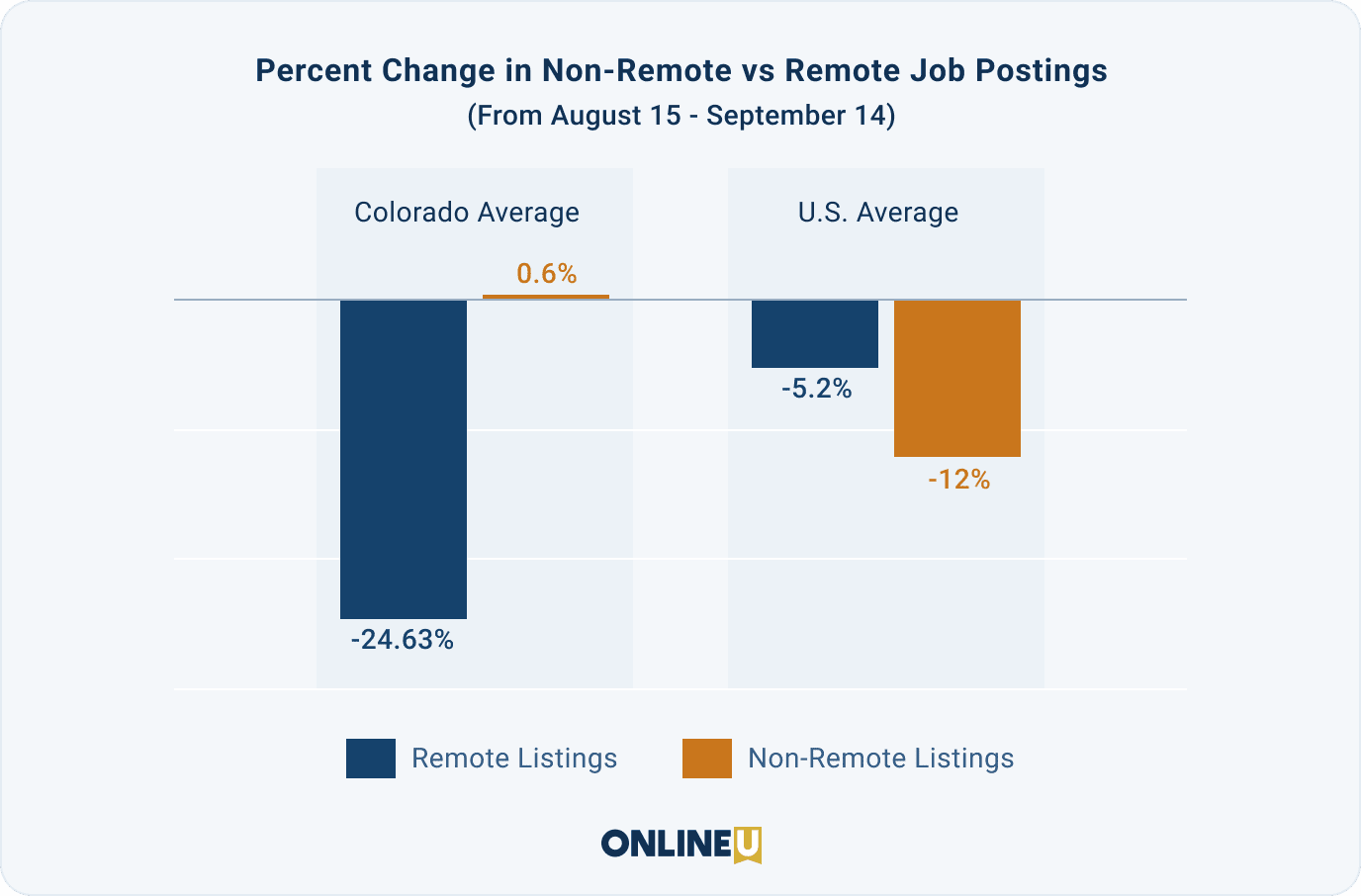Are Strict Pay Transparency Laws Dampening Remote Work Options?
Colorado, a pioneer in pay transparency laws, has seen listings for remote jobs decrease by 25% in the past month
Key Insights:
- Colorado, where recruiters are required to list a pay range in the job advertisement, has seen recent listings for remote jobs drop by 25%, five times the national average decrease of 5%.
- However, recent listings for non-remote positions in the state are steady, even as the national average number of non-remote listings has dropped 12% over the past 30 days.
- Remote listings are now explicitly writing that Colorado residents are not eligible to apply rather than list pay ranges.
- Since the pandemic shake-up of the economy, more local and state policymakers have passed laws to ensure various levels of pay transparency, which job seekers have long demanded.
- New York City, as well as California and Washington, now join Colorado in requiring companies with employees in their jurisdiction to post pay ranges in advertisements.
- Other states’ pay transparency laws require the applicant to inquire about the pay range or to pass an initial interview.

The move towards remote work has been one of the defining economic trends of the pandemic. Some of the biggest beneficiaries of this shift were those working in higher-paying, white-collar jobs.
Though many companies are trying to lure employees back to the office now, employers have also benefited from the shift to remote work.
When working in an office is a prerequisite, employers’ hiring choices are limited to those who can commute to the office or are willing to relocate. When remote work is an option, an employer can recruit nationwide to find the ideal applicant, regardless of their location.
Well, almost nationwide.
With so many areas to recruit in, employers hiring for remote jobs can choose to avoid jurisdictions whose laws force them to change their hiring process by requiring recruiters to list the pay range for all jobs.
For a year now, any company with four or more employees in Colorado has been required to list the salary range for all of its advertised jobs. For that reason, some recruiters have steered clear of the state. In fact, many remote advertisements include a simple but straightforward : “This is a remote job except that it is not eligible to be performed in Colorado.”
Despite this, there appears to be momentum for pay transparency rules similar to Colorado’s law. New York City now makes it an “unlawful discriminatory practice” to post any job listing for a job to be performed in the city that does not include the minimum and maximum pay.
Proponents of pay transparency say it both streamlines the hiring process and allows for better analysis of inequities in hiring practices.

